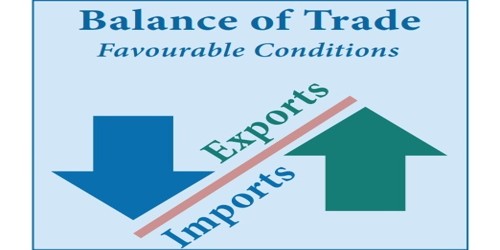
Welcome to our comprehensive guide on wealth management and estate planning. In today's fast-paced world, the need for financial security and stability has never been more important. Effective wealth management strategies and estate planning are essential tools in securing and preserving one's assets for the future.
At its core, wealth management is the process of managing an individual's financial assets and investments to achieve financial goals. Estate planning involves preparing for the distribution of assets after death to minimize taxes, settlement costs, and ensure that assets are passed on to the intended beneficiaries.
Preserving assets and passing them on to future generations requires careful planning and professional guidance. In this article, we'll explore the key components of wealth management and estate planning, the benefits they offer, and how they work together to achieve long-term financial security.
Key Takeaways
- Effective wealth management involves enhancing finances, preserving assets, and passing on one's legacy.
- Estate planning is crucial in ensuring that assets are distributed according to the individual's wishes and minimize settlement costs and taxes.
- Proactive financial planning and seeking professional guidance are essential in managing wealth and creating a personalized wealth management plan.
- Investment strategies, retirement planning, and risk management are key components of wealth management.
- The ongoing review and adaptation of wealth management strategies are crucial in ensuring long-term financial security.
Understanding Wealth Management
Wealth management is a comprehensive approach to managing one's financial resources while also planning for future financial goals. It involves various aspects such as financial planning, investment strategies, asset allocation, and retirement planning.
Financial planning is the foundation of wealth management. It involves analyzing one's financial situation, defining financial goals, and creating a plan to achieve those goals. Investment strategies refer to the methods used to invest one's money effectively, with the aim of generating favorable returns on investment. Asset allocation involves appropriately dividing one's investment portfolio among various assets to minimize risk and maximize returns. Retirement planning is the process of defining one's retirement goals and creating a plan to achieve them.
Effective wealth management requires a holistic approach that considers an individual's unique circumstances, risk tolerance, and financial objectives. A skilled wealth manager can provide guidance and expertise in navigating these complexities.
Financial Planning
A sound financial plan is the foundation of any successful wealth management strategy. The process involves a detailed analysis of one's current financial situation, defining goals, and creating a plan to achieve those goals. This plan may include a budget, investment strategy, debt management, and retirement planning. A financial plan should be regularly reviewed and updated to adapt to changing circumstances and financial goals.
Investment Strategies
Investment strategies involve a range of approaches to investing money effectively, including creating a diversified portfolio, assessing risk, and generating favorable returns on investment. A well-diversified portfolio includes a range of asset classes, such as stocks, bonds, and real estate. This approach helps to minimize risk by spreading investments across various assets, reducing the impact of any one asset's performance on the overall portfolio. Risk assessment involves analyzing the level of risk an individual is willing to take on, given their financial goals and risk tolerance, and creating an investment strategy aligned with these factors.
Asset Allocation
Asset allocation involves dividing one's investment portfolio among various assets to optimize portfolio performance and minimize risk. This approach considers an individual's financial goals, risk tolerance, and investment time frame to create an appropriate mix of assets. For example, a younger individual may be more willing to take on risk and invest a greater portion of their portfolio in stocks, while an older individual may choose to invest more conservatively in bonds to minimize risk.
Retirement Planning
Retirement planning involves defining one's retirement goals and creating a plan to achieve those goals. This plan may include assessing the amount of retirement savings necessary to achieve one's desired lifestyle, creating a sustainable retirement income stream, and considering factors such as healthcare costs and life expectancy. A well-designed retirement plan is an essential component of any effective wealth management strategy.
The Role of a Wealth Manager

A wealth manager plays an essential role in assisting individuals in achieving their financial goals through effective wealth management. They offer valuable expertise and guidance to optimize financial outcomes and provide customized solutions that align with the client's specific needs and aspirations.
One of the key responsibilities of a wealth manager is portfolio management. They oversee the client's investment portfolio, ensuring that it aligns with their financial goals and risk tolerance. Risk management is also an important aspect of their role, as they work to minimize potential losses through diversification and other strategies.
| Portfolio Management | Risk Management | Tax Planning |
|---|---|---|
| Oversee investment portfolio | Minimize potential losses | Optimize tax efficiency |
| Align portfolio with client's goals | Diversify portfolio | Identify tax-saving opportunities |
| Monitor portfolio performance | Develop risk mitigation strategies | Implement tax reduction strategies |
Tax planning is another crucial aspect of a wealth manager's role. They work with clients to identify tax-saving opportunities and implement strategies to optimize tax efficiency. This can involve implementing tax reduction strategies alongside ongoing tax planning to help clients preserve their wealth.
Overall, the role of a wealth manager is to provide comprehensive financial guidance to help clients achieve their financial objectives. Their expertise in portfolio management, risk management, and tax planning is essential to creating a successful wealth management plan that aligns with the client's specific needs and aspirations.
Benefits of Wealth Management
Effective wealth management provides numerous benefits, including the preservation of wealth, financial security, and long-term growth. Let's take a deeper look at each of these benefits:
Wealth Preservation
Wealth preservation is a crucial aspect of wealth management, particularly for individuals who want to ensure that their assets remain intact and secure. Effective wealth management strategies can help individuals protect their assets from market volatility, inflation, and other financial risks, providing a stable foundation for long-term financial security.
Financial Security
Wealth management can help individuals achieve financial security by providing a comprehensive approach to financial planning and investment. This includes developing a personalized wealth management plan, creating a diversified investment portfolio, and implementing risk management strategies. By taking a proactive approach to financial planning and management, individuals can achieve greater financial security and peace of mind.
Long-term Growth
Effective wealth management strategies can also help individuals achieve long-term growth of their assets, enabling them to achieve their financial goals and aspirations. By creating a well-balanced and diversified investment portfolio, individuals can benefit from the potential for favorable investment returns over time. This, combined with proactive tax planning and estate planning, can help individuals preserve and grow their wealth for generations to come.
"Wealth management is not just about accumulating money, but also about preserving and growing it for the future."
Creating a Personalized Wealth Management Plan

Effective wealth management requires a comprehensive approach that considers an individual's financial goals, risk tolerance, and other factors. Creating a personalized wealth management plan is crucial in achieving optimal outcomes through customized solutions.
Goal Setting: The first step in creating a personalized wealth management plan is setting achievable goals. These goals should be specific, measurable, attainable, relevant, and time-bound. Having clear financial goals provides a roadmap for developing a customized wealth management plan.
Risk Tolerance: Understanding an individual's risk tolerance is crucial in creating a wealth management plan that aligns with their unique needs and aspirations. Risk tolerance is the degree of risk an individual is willing to accept in pursuit of their financial goals. A wealth manager can help assess risk tolerance through various tools and questionnaires.
| Customized Solutions: | Benefits: |
|---|---|
| Asset allocation tailored to individual goals and risk tolerance | Optimize investment returns and minimize exposure to losses |
| Estate planning that considers unique family circumstances | Protect and distribute assets according to individual wishes |
| Tax planning that maximizes tax efficiency | Preserve wealth and minimize tax liability |
"Creating a personalized wealth management plan is crucial in achieving optimal outcomes through customized solutions."
Customized solutions are a hallmark of effective wealth management. Wealth managers use a variety of tools and strategies to develop tailored solutions, including asset allocation, estate planning, and tax planning. These customized solutions offer numerous benefits, such as optimizing investment returns, protecting and distributing assets according to individual wishes, and maximizing tax efficiency.
Working with a wealth manager to create a personalized wealth management plan can help individuals achieve their financial goals while effectively managing risk and minimizing exposure to losses.
Investment Strategies for Wealth Accumulation
Investment strategies are an essential aspect of wealth management. A well-designed investment strategy can help you achieve your financial goals, generate favorable returns, and manage risk effectively. While there are numerous investment options available, it is crucial to develop a diversified portfolio that aligns with your financial objectives and risk tolerance.
Diversification involves spreading your investments across different asset classes, such as stocks, bonds, real estate, commodities, and others. This approach helps reduce the risk associated with investing in a single asset class while providing exposure to potential returns from different types of investments.
Asset Classes
Asset classes can be broadly classified into three categories: equities, fixed income, and cash equivalents. Each asset class has its unique characteristics and varying levels of risk and return potential.
| Asset Class | Description | Potential Return | Risk Level |
|---|---|---|---|
| Equities | Ownership in a company | High | High |
| Fixed Income | Debt securities issued by a company or government | Low to medium | Low to medium |
| Cash Equivalents | Short-term investments with low risk | Low | Low |
The ideal mix of asset classes depends on your long-term investment goals, time horizon, and risk tolerance. A professional wealth manager can help you determine the most appropriate asset allocation based on your individual circumstances.
Investment Returns
Investment returns are a critical measure of investment success. The potential returns from each asset class can vary significantly, and it is essential to understand the risks associated with each investment. A diversified portfolio can help generate consistent returns while minimizing risk through effective asset allocation.
Investment returns are generally classified into two categories: capital gains and income. Capital gains refer to the appreciation in the value of an investment, while income refers to any interest or dividends earned from the investment.
Effective investment strategies involve regularly reviewing and rebalancing your portfolio to ensure that it remains aligned with your investment objectives. This approach can help optimize returns while minimizing risk.
In conclusion, a well-designed investment strategy is an essential component of wealth management. A diversified portfolio that balances risk and return potential across different asset classes can help you achieve your long-term financial goals. Seek the guidance of a professional wealth manager to develop a customized investment plan that aligns with your specific needs and aspirations.
Retirement Planning and Wealth Management

Retirement planning is a crucial aspect of wealth management and involves creating a financial plan to support your retirement years. It requires careful consideration of retirement savings, retirement income, and achieving financial independence.
One of the key objectives of wealth management is to ensure that individuals can maintain their desired standard of living throughout their retirement years. This involves assessing current expenses and estimating future expenses, factoring in inflation and potential unforeseen expenses.
Managing retirement savings is a critical component of retirement planning. The retirement savings can be invested in various assets to provide a reliable stream of income during your retirement years. The investment strategy should consider your risk tolerance, financial goals, and investment horizon. Diversifying your portfolio across different asset classes can help reduce risk and enhance returns.
Creating a sustainable retirement income stream is another crucial aspect of retirement planning. This involves identifying potential sources of retirement income, such as social security benefits, pensions, and personal investments. As a part of wealth management, individuals can work with financial advisors to create a comprehensive retirement income plan, balancing the sources of income to achieve optimal results.
Finally, achieving financial independence during retirement years should be a goal for everyone. Financial independence entails having sufficient assets and income streams to support your desired lifestyle without relying on external support. Through effective wealth management and retirement planning, individuals can achieve financial independence and enjoy a comfortable lifestyle during their golden years.
Estate Planning for Asset Distribution
One of the most critical aspects of wealth management is estate planning. Estate planning involves creating a plan for the distribution of one's assets in the event of their death. It includes identifying beneficiaries, setting up wills, and trusts, and developing legacy planning strategies for preserving and passing on one's assets.
Wills are legal documents that outline how a person's assets will be distributed upon their death. They can also include instructions for guardianship of minor children. Trusts are another valuable estate planning tool that can help protect assets from taxes and ensure that they are distributed according to the individual's wishes. Trusts can be set up during one's lifetime or established through a will.
Beneficiaries are individuals or entities that receive specific assets or benefits upon the death of the individual. It's crucial to identify beneficiaries and ensure that the appropriate documentation is in place to avoid confusion or legal battles concerning asset distribution.
"Estate planning is an essential element of wealth management because it ensures that your assets are distributed according to your wishes. A well-executed estate plan can help minimize taxes, avoid probate, and protect your legacy."
Legacy planning strategies focus on preserving and passing on one's assets to future generations. It involves creating a plan for transferring ownership of businesses, investments, or other assets to family members or designated entities. Legacy planning can also include charitable giving strategies, such as establishing a trust or foundation to support philanthropic causes.
| Wills vs. Trusts | Beneficiaries | Legacy Planning Strategies |
|---|---|---|
|
|
|
Effective estate planning requires careful consideration and planning to ensure that assets are protected and distributed according to individual wishes. Seeking guidance from a wealth manager or estate planning attorney can help individuals develop a customized plan that aligns with their specific goals and objectives.
Managing Risk in Wealth Management
Effective risk management is an integral component of any wealth management strategy. It involves assessing potential risks and implementing strategies to mitigate them, ensuring that assets are protected against unforeseen events.
Risk assessment is the first step in managing risk in wealth management. This involves identifying potential risks, such as market volatility, inflation, or changes in tax laws. Assessing the likelihood and potential impact of these risks can help individuals make informed decisions about how to manage their assets.
Once risks have been assessed, the next step is to implement risk mitigation strategies. This may include diversifying investments across different asset classes, taking a long-term investment approach, or investing in insurance policies that can help protect assets in the event of unexpected events such as natural disasters or accidents.
| Pros of Risk Mitigation | Cons of Risk Mitigation |
|---|---|
| Protection against potential losses | May limit growth potential |
| Increased financial security | Can be costly to implement |
| Peace of mind | May require sacrificing short-term gains |
Insurance planning is another key component of risk management. Insurance policies can provide protection against potential losses and help mitigate the financial impact of unforeseen events. Examples of insurance policies that may be included in a wealth management plan include life insurance, disability insurance, and long-term care insurance.
Regular reviews of risk management strategies are essential to ensure that they remain effective over time. Wealth management professionals can help individuals evaluate their current strategies and make necessary adjustments as needed.
Tax Planning and Wealth Management
When it comes to wealth management, tax planning is a crucial component. By implementing tax-efficient strategies and optimizing tax payments, individuals can preserve and grow their wealth over time. Effective tax planning can help ensure that as much of an individual's money as possible goes towards their financial goals rather than to the government in taxes.
One key tax-efficient strategy is to take advantage of tax-advantaged retirement accounts such as 401(k) plans and Individual Retirement Accounts (IRAs). Contributions to these accounts are often tax-deductible, meaning they can reduce an individual's taxable income. Additionally, the investment gains in these accounts can grow tax-deferred until the funds are withdrawn in retirement, potentially keeping more money in an individual's pocket in the long run.
Another tax optimization strategy involves managing capital gains and losses. By selling investments that have lost value, individuals can offset capital gains and potentially lower their taxable income. Additionally, charitable donations can provide a tax deduction while also supporting a good cause.
Insurance planning is also an important component of tax planning and wealth management. By maintaining appropriate insurance coverage, individuals can protect their assets and reduce their potential tax liability. For example, life insurance can help ensure that beneficiaries receive a tax-free benefit upon the individual's passing, while long-term care insurance can provide tax-free benefits for qualifying expenses.
Tax-Efficient Investing Strategies
Investing for tax efficiency can also help individuals preserve their wealth. One strategy is to invest in tax-efficient mutual funds or exchange-traded funds (ETFs), which can help reduce the tax burden on investment gains. Additionally, some investments, such as municipal bonds, may provide tax-free income.
Diversification and asset allocation are also important for tax-efficient investing. By spreading investments across different asset classes, individuals can potentially reduce their overall tax liability. For example, if an individual has a mix of taxable and tax-advantaged accounts, they may choose to hold tax-inefficient investments, such as bonds, in their tax-advantaged accounts and tax-efficient investments, such as stocks, in their taxable accounts.
Wealth Preservation through Tax Planning
Tax planning is not only important for minimizing taxes but also for preserving wealth. By developing a proactive tax plan, individuals can optimize their financial outcomes and protect their assets against unforeseen risks and events. Effective tax planning should be a part of an overall wealth management strategy to ensure ongoing financial security.
Reviewing and Adapting Wealth Management Strategies
Regular reviews and performance evaluations are crucial in ensuring the ongoing effectiveness of wealth management strategies. Adjusting financial goals and making necessary changes to the wealth management plan is necessary to maintain alignment with evolving financial needs and market conditions.
Performance evaluation involves assessing the performance of investments, comparing them with benchmarks, and analyzing the results to identify areas for improvement. A well-structured portfolio review should involve a thorough examination of asset allocation, investment returns, risk exposure, and tax efficiency.
| Regular Reviews and Performance Evaluations | Adjusting Goals |
|---|---|
|
|
Regular reviews and performance evaluations provide an opportunity to adjust the wealth management plan to reflect any significant life-changing events, such as marriage, divorce, death of a loved one, or the birth of a child. The plan can be adapted to reflect changes in income, expenses, and overall financial goals.
"The only constant in life is change, and this is particularly true when it comes to finances. Regular review and adjustment of wealth management strategies is necessary to stay on track and achieve long-term financial goals."
Adjusting goals may involve rebalancing the portfolio to align with the client's risk tolerance and overall investment objectives. Adapting to market conditions may involve considering new investment opportunities or diversifying the portfolio to reduce risk exposure.
In conclusion, regular reviews and performance evaluations are essential for ensuring the ongoing effectiveness of wealth management strategies. Adjusting financial goals and making necessary changes to the wealth management plan is necessary to maintain alignment with evolving financial needs and market conditions.
Conclusion
Effective wealth management and estate planning are crucial components of achieving long-term financial security. By taking a proactive approach to financial planning and seeking professional guidance, individuals can optimize their wealth management strategies to effectively preserve and pass on their assets.
With the guidance of a wealth manager, individuals can customize their approach to financial planning to meet their specific needs and goals. Through diversified investment strategies, retirement planning, estate planning, risk management, and tax planning, individuals can achieve financial independence and long-term growth.
Regular reviews and performance evaluations are necessary to ensure the ongoing effectiveness of wealth management strategies. By adapting financial goals and making necessary changes, individuals can stay on track toward achieving their long-term financial objectives.
Overall, effective wealth management and estate planning provide individuals with the means to protect and grow their assets, ensuring financial security for themselves and their loved ones for years to come.
FAQ
What is wealth management?
Wealth management is a comprehensive approach to managing one's finances and assets. It involves various aspects such as financial planning, investment strategies, asset allocation, and retirement planning.
What is the role of a wealth manager?
A wealth manager assists individuals in their wealth management journey. They are responsible for portfolio management, risk management, and tax planning, providing expertise and guidance to optimize financial outcomes.
What are the benefits of wealth management?
Wealth management offers several benefits, including wealth preservation, financial security, and long-term growth. Effective wealth management strategies help individuals protect and grow their assets over time.
How do I create a personalized wealth management plan?
Creating a personalized wealth management plan involves considering individual financial goals, risk tolerance, and other factors. It requires developing customized solutions that align with your specific needs and aspirations.
What are investment strategies for wealth accumulation?
Investment strategies for wealth accumulation involve maintaining a diversified portfolio, exploring different asset classes, and aiming for favorable investment returns over time. It is essential to have a well-balanced and diversified investment approach.
How does wealth management relate to retirement planning?
Wealth management plays a crucial role in retirement planning. It includes topics such as retirement savings, creating a sustainable retirement income stream, and achieving financial independence during retirement years.
What is estate planning and how does it tie into wealth management?
Estate planning involves wills, trusts, and identifying beneficiaries for effective asset distribution. It is a vital component of wealth management, ensuring that assets are distributed according to your wishes and in line with your overall financial strategy.
How is risk managed in wealth management?
Risk management in wealth management involves assessing risks, implementing risk mitigation strategies, and considering insurance planning. It aims to protect your assets against unforeseen events and minimize potential financial losses.
Why is tax planning important in wealth management?
Tax planning is crucial in wealth management as it helps you develop tax-efficient strategies and optimize your tax obligations. Proactive tax management is essential for wealth preservation and maximizing financial outcomes.
How often should wealth management strategies be reviewed?
Wealth management strategies should be regularly reviewed to ensure their ongoing effectiveness. This includes conducting performance evaluations, adjusting financial goals if necessary, and making any required changes to the plan.








